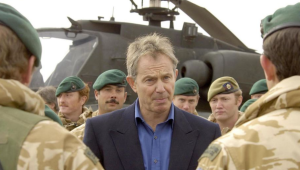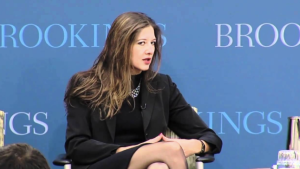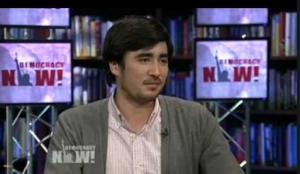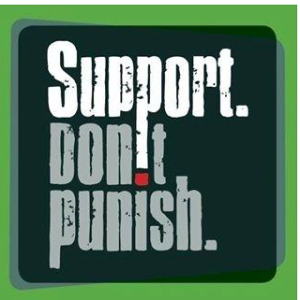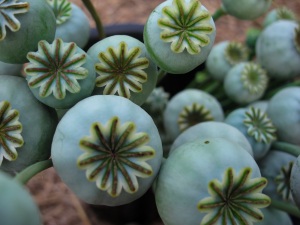 Afghanistan and poppy. The coverage by major media outlets, with few exceptions, reinforces the same false narrative; Afghanistan is a “narco state,” the government is uniquely corrupt, the Taliban is the main driver and beneficiary of the illicit drug economy and a million miserable and pathetic Afghans are hopelessly addicted to opium or heroin.
Afghanistan and poppy. The coverage by major media outlets, with few exceptions, reinforces the same false narrative; Afghanistan is a “narco state,” the government is uniquely corrupt, the Taliban is the main driver and beneficiary of the illicit drug economy and a million miserable and pathetic Afghans are hopelessly addicted to opium or heroin.
There are three additional problems with mainstream media reporting on drugs in Afghanistan. Only one conclusion is drawn and it is always the same – the drug war must continue despite its failure by every metric. Alternatives to prohibition are not seriously explored.
Second, the words used to describe drug users are derogatory and dehumanizing. These articles consistently use the words “junkie” and “addict.” One would have thought in the twenty-first century that journalists, or their editors, would have excised these stigmatizing terms before publication.
The third problem is an almost exclusive reliance on analysis from officials at the United Nations Office on Drugs and Crime (UNODC) and from so-called experts at right-wing think tanks like the Brookings Institution. Members of these organizations are disproportionately quoted and no evaluation from organizations or experts that oppose the militarized war on drugs and prohibition is offered.
Two recent articles exemplify these problems. The first is by Matthieu Aikins in a piece for Rolling Stone titled, Afghanistan: The Making of a Narco State and the second is by Joseph Goldstein writing for the New York Times. His article, Kabul Residents Watch as Heroin Addiction Grows, and a video that accompanies it by Jon Gerberg titled, Gawkers Above, Death Below, are exceptionally appalling. I will critique Goldstein and Gerberg’s work in a forthcoming piece.
Last year, Aikins wrote an expose in Rolling Stone called the A-Team Killings that exposed the hypocrisy of Afghanistan as “the right war.” It was investigative journalism and original reporting at its best. But in Afghanistan: The Making of a Narco State he uses the drug warrior’s template to examine the opium economy. Aikins doesn’t question or criticize the core notions of the War on Drugs – like why should the United States have any say over drug policy or wage a war to enforce prohibition in Afghanistan?
Aikins comes off as a drug war supporter when he says that the war on drugs could have been won during the Obama approved troop surge in 2010:
The arrival of tens of thousands of troops and billions in spending might have been a golden opportunity to address the opium problem.
The one important contribution Akin’s article makes is demolishing the widespread idea that the Taliban are the main actors in the narcotics trade. He indicts officials at the highest levels in the Afghan government as the most important and powerful players in the opium economy. Aikins also traces how the U.S. has a long history of working with known drug traffickers in Afghanistan from the 1980s up until today.
But for some reason, Aikins professes shock that Afghanistan is the uncontested leader in the production of illicit opiates, which accounts for about 90 percent of the global supply. Really? The country has had that distinction for the last nine years. He expresses astonishment that the narcotics trade has expanded during the thirteen-year-long war and occupation. And he concludes it is because:
…in pursuit of the War on Terror, we lost the War on Drugs in Afghanistan by allying with many of the same people who turned the country into the world’s biggest source of heroin.
Aikins shouldn’t be surprised by the collusion between drug traffickers and government officials. This corruption is a trademark of the War on Drugs and it occurs whenever the U.S. military and its spy agency the CIA and its foot soldiers in the DEA intervene abroad. Historically the United States has supported the most murderous, right-wing organizations in illicit drug cultivating countries. It’s well documented in Alfred McCoy’s seminal book, The Politics of Heroin: CIA Complicity in the Global Drug Trade: Afghanistan/ Southeast Asia/ Central America/Colombia.
And Aikins is mistaken to link losing the drug war as a result of pursuing the War on Terror. The reality is both wars are lost causes. Almost five decades into the international War on Drugs profits are spectacular, mood-altering drugs are widely available, purity is good and prices are down. It is drug war, black market capitalism. And fourteen years of the global War on Terror has resulted in more terror and insecurity, not less.
But the two wars are related in another way. Politicians, prime ministers and presidents in the United States and the United Kingdom used the War on Drugs to garner support for the War on Terror in Afghanistan. “Narco” became a new prefix for the words “state” and “terrorist” and provided justification to launch and continue the war and occupation of the country. A drug panic was unleashed and the hyperbole went like this: Violent, Islamic, narco terrorist Taliban drug barons want to addict infidels in the West to heroin, use the profits to fund jihad against NATO and we have to stop those Muslim, drug peddling evildoers!
Former president George W. Bush said:
Make no mistake about it, if you’re buying illegal drugs in America it’s likely that money is going to end up in the hands of terrorist organizations. Just think about the Taliban…When we fight drugs, we fight the war on terror.
Moron Bush didn’t read the memo that Mexico supplies America with its injectable heroin, not Afghanistan.
Tony Blair, the former Prime Minister of Britain and Bush’s pet poodle asserted:
The arms the Taliban are buying today are paid for by the lives of young British people buying their drugs on British streets…This is another part of their regime we should seek to destroy.
The U.S. extradited several alleged Afghan drug traffickers and after show trials chucked them into prison with life sentences. Aikins mentions Haji Juma Khan. He is currently incarcerated in the Metropolitan Correctional Center in Midtown Manhattan awaiting trial. And for what? Khan’s arrest and extradition to New York City in 2008 had no impact on the narcotics trade in Afghanistan. In fact, just the opposite, 2014 was a banner year for poppy.
Aikins’s sources are devoted drug war defenders: Vanda Felbab-Brown, Senior Fellow, Foreign Policy, Center for 21st Century Security and Intelligence at the Brookings Institution; Jean-Luc Lemahieu, former head of the UNODC; Jen Psaki, spokeswoman for the State Department; Thomas Schweich, former senior U.S. counternarcotics official; and an unnamed Justice Department staffer. Given the enormous and expensive fuck up that the War on Drugs in Afghanistan is–$7.6 billion went down the gigantic Pentagon/DEA rat hole–and which these so-called experts all endorsed and are still committed to, why quote them exclusively? How about including the opinions of experts who aren’t employed by the UNODC or the U.S. drug war washing machine who argued that military solutions to poppy cultivation and drug trafficking in Afghanistan wouldn’t work? And we were right.
The work of Vanda Felbab-Brown is particularly pernicious. In Aikins’s article she is quoted as being opposed to poppy eradication campaigns because it’s “…morally reprehensible” and she states, “The human security of large segments of the Afghan population is dependent on poppy.” You’d think she actually cared about Afghans working in the drug trade. I don’t believe she does. Felbab-Brown masquerades as a drug war reformer who believes in human rights but her work for the Brookings Institution–a pro-drug war think tank with deep connections to the military and political power elites in Washington DC–justifies continuing to fight the War on Drugs. Felbab-Brown wants to tweak the law enforcement tactics used in the drug war, not end it. She writes:
Rather than jettisoning eradication, interdiction and alternative livelihoods efforts altogether, there is a great and urgent need to make them smarter.
To think it’s possible to make the drug war smarter is not only naïve, it’s just plain stupid.
Against an emerging global consensus, Felbab-Brown opposes the legalization and regulation of drugs. She argues that it won’t curtail the violence or eliminate the criminal networks that currently control the illicit drug trade. That too, is stupid. When alcohol prohibition was repealed in the United States, the violence that gangsters like Al Capone and Lucky Luciano used to control markets, vanished.
And as long as war rages in Afghanistan, building an economy that isn’t heavily dependent on poppy is a fantasy. And yet Felbab-Brown supports the U.S. war and occupation of Afghanistan and is in favor of troops remaining.
Matthieu Aikins was recently a guest on Democracy Now and said:
What has happened in Afghanistan over the last 13 years has been the flourishing of a narco state that is really without any parallel in history. This is something that is extraordinary, that is catastrophic, that has grave danger for the future and yet there has been virtually no discussion of it in recent years.
Aikins’s comment sounds like something Michelle Leonhart, the bombastic Administrator of the DEA, would say. The narcotics economy in Afghanistan is neither extraordinary nor catastrophic. And the only “grave danger for the future” is if discussions about it leads to a significant ramping up of the drug war.
It’s actually a good thing that the Afghan state hasn’t launched a full-scale, militarized war against poppy. Because when governments try to “win” the War on Drugs they end up killing a lot of poor people who are simply trying to survive, the men (and they are all men) at the top of the illicit drug chain get richer and more powerful, prison populations explode, and the availability and consumption of drugs doesn’t decline.
Colombia in the 1980s and Mexico in the 2000s are brutal examples. In collusion with the DEA and the CIA, the Colombian government unleashed the cocaine wars that resulted in a bloody reign of terror in the country. Thousands were openly gunned down or disappeared including Supreme Court judges, court officials, journalists, politicians, police, soldiers and civilians. Pablo Escobar, the notorious head of the Medellín drug cartel, was more powerful than the Colombian state. In 1989, Forbes magazine named Escobar the seventh richest man in the world with a personal estimated fortune of $24 billion.
The gruesome violence of the drug war in Mexico surpasses that of Colombia. An astonishing 100,000 Mexicans have been murdered and over 25,000 have been disappeared in just 8 years. Despite billions spent on the drug war and the capture of Jaoquín Guzmán “El Chapo,” the head of the powerful Sinaloa drug cartel, truckloads of cocaine, heroin, marijuana and methamphetamines keep crossing the Mexico-U.S border.
Aikins’s article ends on a pessimistic note:
Between the impoverished farmer on one end and the desperate junkie on the other lies a tangled chain of criminals, politicians and drug warriors – the product of a world where drugs are illegal and addicts are plentiful. And with all the corruption and greed that have created the Afghan narco state, it’s hard to imagine the country any other way.
His conclusion smacks of the pejorative phrase, “Afghan good enough.”
But there are many reasons to be optimistic, although curiously, Aikins isn’t aware of them.
For the first time in fifty years, the drug war is under serious and sustained attack by world leaders and former drug warriors. The media regularly chronicles the massive failure of prohibition and now puts forward the need for alternatives.
In an article in the Guardian, William Patey, the British ambassador to Afghanistan from 2010-2012, writes:
I didn’t believe it before I went to Afghanistan. But now it’s clear that prohibition is no answer to this deadly scourge…Putting governments in control of the global drugs trade through legal regulation will remove the incentive for those in fragile, insecure regions to produce and traffic drugs.
Even right-wing presidents of countries in Latin America are exploring legalization and regulation of drugs. Uruguay has gone the furthest and legalized marijuana. And in the United States, home court of the drug warriors, four states have legalized marijuana. Talk about hypocrisy!
The Global Commission on Drug Policy issued a groundbreaking report in 2014 titled, “Taking Control: Pathways to Drug Polices That Work,” that explains how to end the global War on Drugs. The recommendations include: legalization and regulation of drug markets, expansion of heroin and methadone maintenance for drug users and alternatives to incarceration for drug crimes.
Unfortunately, Afghanistan has been left out of the international drug war reform debate. But as the world’s largest exporter of heroin, it’s crucial that those involved in the narcotics economy and counternarcotics officials in the Afghan government discuss and debate how to adapt and implement the recommendations of the Global Commission on Drug Policy.
Poppy isn’t the problem in Afghanistan, prohibition is.
© Copyright, Helen Redmond. May not be reprinted without permission.
